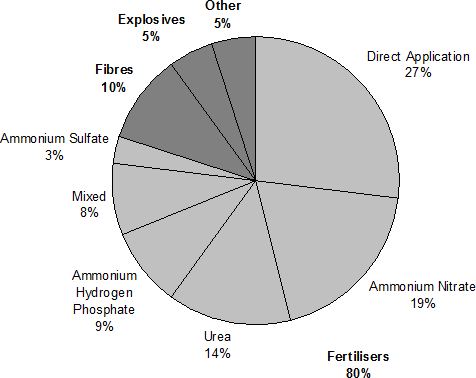[cs_content][cs_section parallax=”false” separator_top_type=”none” separator_top_height=”50px” separator_top_angle_point=”50″ separator_bottom_type=”none” separator_bottom_height=”50px” separator_bottom_angle_point=”50″ style=”margin: 0px;padding: 45px 0px;”][cs_row inner_container=”true” marginless_columns=”false” style=”margin: 0px auto;padding: 0px;”][cs_column fade=”false” fade_animation=”in” fade_animation_offset=”45px” fade_duration=”750″ type=”1/1″ style=”padding: 0px;”][cs_text]Monitoring and Management > 2. Maximising Production >
Identify and describe the industrial uses of ammonia [/cs_text][/cs_column][/cs_row][/cs_section][cs_section parallax=”false” separator_top_type=”none” separator_top_height=”50px” separator_top_angle_point=”50″ separator_bottom_type=”none” separator_bottom_height=”50px” separator_bottom_angle_point=”50″ style=”margin: 0px;padding: 45px 0px;”][cs_row inner_container=”true” marginless_columns=”false” style=”margin: 0px auto;padding: 0px;”][cs_column fade=”false” fade_animation=”in” fade_animation_offset=”45px” fade_duration=”750″ type=”1/1″ style=”padding: 0px;”][cs_text]
- Ammonia is a very important industrial chemical, and is used widely in both its pure form and as a feedstock for a wide variety of other chemicals.
- Ammonia ranks second behind sulfuric acid in the quantity produced worldwide per year.
- Ammonia itself is used:
- As a fertiliser.
- In many alkaline cleansers, such as window and floor cleaners.
- As a refrigerant gas.
- Ammonia is used in the manufacture of:
- Fertilisers, such as ammonium sulfate, ammonium nitrate, ammonium hydrogen phosphate, and urea.
- Nitric acid, which is used to manufacture:
- Ammonium nitrate fertiliser.
- Dyes.
- Fibres and plastics.
- Explosives, such as ammonium nitrate, trinitrotoluene (TNT) and nitroglycerine.
- Cyanides, which are used to:
- Manufacture synthetic polymers, such as nylon and acrylics.
- Extract gold from ore bodies.

The uses of ammonia, by percentage
[/cs_text][/cs_column][/cs_row][/cs_section][cs_section parallax=”false” separator_top_type=”none” separator_top_height=”50px” separator_top_angle_point=”50″ separator_bottom_type=”none” separator_bottom_height=”50px” separator_bottom_angle_point=”50″ style=”margin: 0px;padding: 45px 0px;”][cs_row inner_container=”true” marginless_columns=”false” style=”margin: 0px auto;padding: 0px;”][cs_column fade=”false” fade_animation=”in” fade_animation_offset=”45px” fade_duration=”750″ type=”1/1″ style=”padding: 0px;”][x_video_embed no_container=”false” type=”16:9″][/x_video_embed][/cs_column][/cs_row][/cs_section][/cs_content]